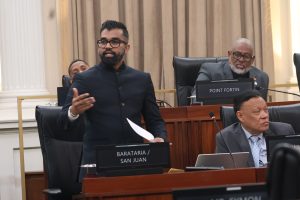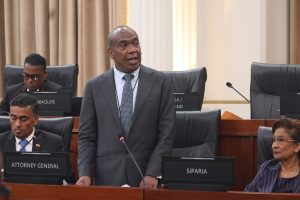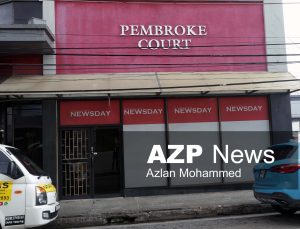By Ravi Nanga
DURING the course of the case management conferences, the judge will make a number of orders that are necessary for the matter to proceed to trial.
One such order will be for the disclosure and inspection of documents.
This means that the parties will be required to disclose all the documents in their possession that relate to the matter. Once the documents are disclosed, it is open to the opposing party to inspect the documents that have been disclosed and take copies of these documents where necessary.
At the case management conference, the judge will make an order requiring the parties to file a list of documents and to allow the opposing party to inspect the documents contained on the list by a specific date.

Once an order for disclosure and inspection is made, the parties will be required to compile a list of documents in their possession that relate to the matter in court. It should be pointed out that even where a document may be detrimental to a party’s case, once that document is in that party’s possession, it must be disclosed to the other party.
The parties will then compile the list of the documents that they have in their possession and file the list in court, in compliance with the court’s order. Once the list is filed in court, it is served on the opposing party.
Upon being served with the list of documents, the parties can then make arrangements with each other in order to inspect the documents. Inspecting the documents entails the opposing party being entitled to examine the physical document, and take copies of documents that they may require.
At times a court may order the parties to file a bundle of documents and serve the bundle on the opposing party.
However, even where a bundle of documents is filed and served, these documents will by necessity be copies, and a party is entitled to request that they be allowed to see the original documents.
After disclosure and inspection takes place in accordance with the court’s order, if a party is of the view that the opposing party has a document that is relevant to the court proceedings, but did not disclose the document, that party can apply to the court for what is referred to as specific disclosure. That is, the party will apply to the court, indicating that the opposing party has a particular document that was not disclosed, but which should have been disclosed.
The court will then have to decide whether the document exists, whether it is necessary to assist to determine the matter and whether to order the opposing party to disclose the document requested.
Although a court makes an order for disclosure, it must be pointed out that the duty to disclose documents is a continuing duty that exists for the duration of the matter. As such, where a party subsequently discovers the existence of documents that were not previously disclosed, but which should have been disclosed, that party is under an obligation to file a supplemental list of documents, disclosing such documents.
Further, where new documents come in existence during the course of the matter, a party is under a similar obligation to disclose such new documents. The opposing party will be entitled to inspect any new document that is subsequently disclosed.

If a party fails to disclose a document, that party will not be able to produce that document at trial and rely upon it. Where a party fails to disclose a document, but wishes to be able to rely on that document at the trial, that party can apply to the court for permission to use the document at trial.
However, there are limited circumstances in which the court will give permission to use a document that was not disclosed pursuant to an order for disclosure.
Given the importance that documents can play in proving an issue, disclosure is a very important step in a legal matter. Parties must exercise care when disclosing documents, and must ensure that all documents relating to the matter that are in their possession are disclosed, as failure to disclose a document may mean that the party will be prevented from relying on the document, which in turn may have a negative impact on that party’s case.
Ravi Nanga is an attorney.
[Please note that this article is intended only to provide general information on the topic being addressed and should not be taken as providing legal advice. In order to be properly advised it will be necessary for an attorney to examine the relevant documents and obtain the necessary instructions before properly advising as to rights and obligations].
![]()











